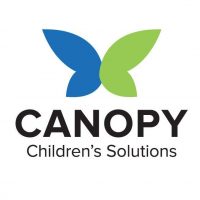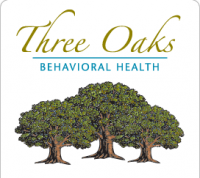Mississippi State Hospital - Chemical Dependency
Drug Rehab Center in Whitfield, Mississippi
Mississippi State Hospital - Chemical Dependency in Whitfield, Mississippi is a 311 bed addiction treatment facility offering a wide range of services for alcoholism, dual diagnosis, opioid addiction, substance abuse, and drug addiction, including detoxification, inpatient and outpatient care, individual and group counseling, holistic and alternative treatments, and acceptance of private health insurance.
About Mississippi State Hospital - Chemical Dependency in Mississippi
Mississippi State Hospital - Chemical Dependency is a public rehab facility located in Whitfield, Mississippi, specializing in treating alcoholism, dual diagnosis, opioid addiction, and substance abuse. The hospital operates on a 350-acre campus, providing a serene setting for recovery.
The facility offers a comprehensive range of services, including medically supervised detox, inpatient treatment, medication-assisted treatment, and mental health therapy. Their approach emphasizes evidence-based practices and individualized treatment plans tailored to each person's unique needs.
Mississippi State Hospital - Chemical Dependency is accredited by the Joint Commission, ensuring adherence to the highest standards of care. The facility utilizes various therapies, such as cognitive-behavioral therapy (CBT), dialectical behavior therapy (DBT), and electroconvulsive therapy (ECT), along with integrated dual diagnosis treatment and psychotropic medication management.
- Medically supervised detox for a safer withdrawal process
- Inpatient program with 24/7 supervision and structured routine
- Medication-assisted treatment (MAT) for opioid addiction
The facility specializes in treating individuals struggling with co-occurring disorders, addressing both addiction and mental health conditions simultaneously for a better chance at long-term recovery.
Genders
Ages
Modality
Additional
Accreditations
State License

JCAHO
Conditions and Issues Treated
Rehabilitation, Medication, and Therapy – a combination of all three is most effective.
The most successful treatments for drug dependence or abuse have been those that include education and counseling and medication such as methadone or buprenorphine. The right drug abuse treatments need counseling, psychotherapy, and detoxification or medications to help with withdrawal symptoms.
Substance abuse can take many different forms, including the overuse or misuse of prescription drugs, unprescribed drugs, alcohol addiction, and drug addiction.
A combination of treatments is often needed to treat drug abuse issues effectively. In the case of drug abuse, there is no easy answer or one-size-fits-all cure.
While some drug addictions can be treated with counseling and support groups, many drug abusers also need medication to help them overcome their addiction. In other cases, drug abuse can lead to a medical problem and require medical treatment.
Treatment for drug addiction typically combines counseling and psychotherapy with medication and behavioral therapies. In some rare cases, hospitalization may also be required. All different treatments combined are the best way to help someone addicted to drugs, alcohol, or other substances.
Treatment for opioid addiction is best made with the help of medical professionals who are experienced in dealing with these types of drugs. This treatment can involve medications, exercise, behavioral therapy, and counseling sessions. It is important to note that the effectiveness of treatments for opioid addiction vary, so it is vital to research which treatment options are suitable for each individual.
Many people who struggle with opioid addiction need to attend specific programs like methadone , Suboxone or Vivitrol clinics.
These types of programs will provide the patient with legal, prescription medications that can help them overcome their cravings for illegal opioids like heroin or fentanyl . If the patient has a chronic condition like Hepatitis C, they must undergo treatment before they can begin taking these medications.
Individuals who are addicted to drugs and/or alcohol often have one or more co-occurring mental health disorders. Addressing both the addiction and the mental health problems at facilities like Mississippi State Hospital - Chemical Dependency can be very beneficial for these individuals.
Common mental health conditions that often co-occur with addiction include:
- Anxiety Disorders – People with drug and alcohol problems often suffer from anxiety disorders such as panic disorder, obsessive-compulsive disorder, social anxiety disorder, and generalized anxiety disorder.
- Depression – One of the most common mental illnesses co-occurring with addiction is major depressive disorder.
- Attention-deficit hyperactivity disorder (ADHD) – Many people with drug and alcohol problems also suffer from ADHD.
- Bipolar Disorder – People with bipolar disorder are more likely to suffer from drug and alcohol problems than the general population, and vice versa.
Levels of Care Offered
This center offers a variety of custom treatment tailored to individual recovery. Currently available are Detox, Drug Rehab, Dual-Diagnosis, Inpatient, with additional therapies available as listed below.
Detox is the stage of recovery where the drugs or alcohol are entirely removed from your body. There are two different ways to detox, with medications and without. For many drugs and alcohol, the acute phase of detox can be completed in a number of days.
Inpatient recovery offers individual therapy, groups, and family therapy. The length of inpatient addiction treatment depends on the addict and their addiction. Inpatient rehab is a costly drug treatment, costing anywhere from $30k- to $60k. However, insurance often offers help in covering these costs.
Therapies & Programs
Individual therapy is ideal for addicts who want to focus on themselves. It can also be helpful for those whose withdrawal symptoms are exacerbated by the presence of other people.
Benefits of individual therapy are:
- Access to a personalized treatment plan that focuses on the individual needs of the addict
- More privacy during treatment sessions
- Better personal development through introspection
- Increased self-awareness regarding addictive tendencies in order to avoid relapse
- Greater potential for a long-term recovery plan
- Receiving professional advice and detox assistance from medical staff
Family therapy can help you and your family deal with old issues that may trigger substance abuse. The idea behind family therapy for drug addiction is that you are never fully healed from substance abuse until you’ve healed your relationship with your family, too. To get sober, you need to find a different way to cope with the pain in your life.
This is when a group of people in various stages of recovery meet up and discuss their experiences, triggers, successes, failures, and even alternative therapies! Unlike support groups where everyone already knows each other, group therapy is conducted along side outpatient or inpatient treatment at Mississippi State Hospital - Chemical Dependency.
Trauma therapy is a clinical process that helps individuals deal with mental stress often caused by traumatic events. The therapist helps the person identify, understand and work through the problem. This is done with the help of talking about it in group or one-on-one counseling sessions.
Therapists use relaxation, role-playing, art, and music to help the person open up about what is bothering them. Some examples include:
- Talking about the traumatic event and how it affected them.
- Helping those who have PTSD to deal with their nightmares and recurring memories.
- Working with individuals to resolve the issues triggering the stress, whether seeing someone who reminds them of what happened or feeling helpless.
The individual is also encouraged to help others that are struggling with similar problems. This often helps them feel empowered and gives them hope.
Trauma therapy is not for everyone; it is usually reserved for people who have recently experienced a traumatic event and struggle to get over it. It is generally done for children, teenage victims of sexual assault, and war veterans.
Payment Options Accepted
For specific insurance or payment methods please contact us.
Is your insurance accepted?
Ask an expert, call (888) 674-0062
Mississippi State Hospital Associated Centers
Discover treatment facilities under the same provider.
No items foundLearn More About Mississippi State Hospital Centers
Additional Details
Specifics, location, and helpful extra information.
Whitfield, Mississippi 39193 Phone Number(601) 351-8000 Meta DetailsUpdated April 15, 2024
Staff Verified
Mississippi State Hospital - Chemical Dependency Patient Reviews
There are no reviews yet. Be the first one to write one.
Whitfield, Mississippi Addiction Information
Mississippi has one of the highest rates of drug and alcohol abuse-related deaths. Approximately 350,000 residents use illicit drugs every year while another 108,000 abuse alcohol. In one year, doctors in Mississippi prescribed 76.8 opioid prescriptions for every 100 persons. This compares to the national rate of 51.4 prescriptions.
Treatment in Nearby Cities
- Holly Springs, MS (178.2 mi.)
- Eupora, MS (101.2 mi.)
- Mendenhall, MS (22.8 mi.)
- Louisville, MS (84.9 mi.)
- Houston, MS (130.2 mi.)
Centers near Mississippi State Hospital - Chemical Dependency
The facility name, logo and brand are the property and registered trademarks of Mississippi State Hospital - Chemical Dependency, and are being used for identification and informational purposes only. Use of these names, logos and brands shall not imply endorsement. RehabNow.org is not affiliated with or sponsored by Mississippi State Hospital - Chemical Dependency.









